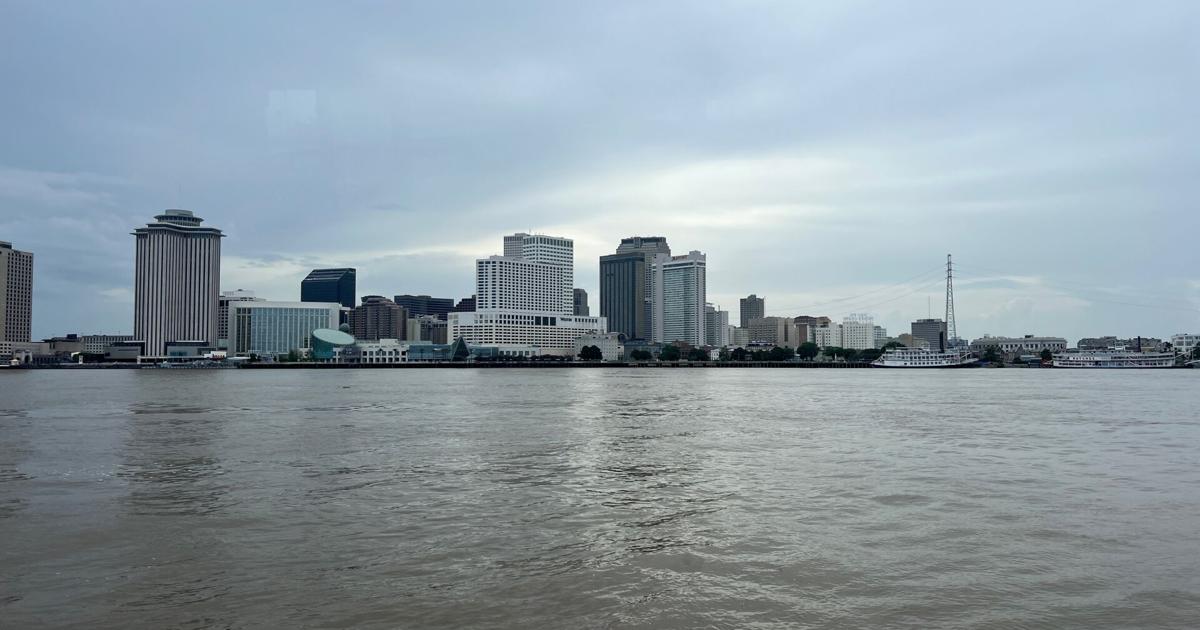Entrepreneurship in New Orleans has never been just about startups.
It has always been about survival, culture and community. It has been about proving that belief can become infrastructure — and that a city can reimagine itself through an entrepreneurial mindset.
Twenty-five years ago, few believed New Orleans could become a model for entrepreneurial innovation. The economy was stagnant. The population was shrinking. National headlines focused on crime, corruption and decline.
But a few rebels saw possibility.
In a downtown bar, they scraped together $10,000 to fund a business plan competition. That small bet sparked The Idea Village and with it, a civic mission to use entrepreneurship as a tool for transformation. Unlike other cities, New Orleans never limited itself to one type of entrepreneur. Tech founders, chefs, artists and neighborhood hustlers were all welcome. That diversity became its strength.
Then came Katrina.
Tim Williamson
Provided photo
On Aug. 29, 2005 — five years to the day after that first contest — the levees broke. The city flooded. Lives and systems collapsed. In the vacuum, everyone became an entrepreneur — reimagining homes, neighborhoods, schools, hospitals and futures. Out of devastation, a startup city emerged.
And the world noticed. Leaders from Google, Salesforce, Stanford, TPG and Silicon Valley didn’t just come to help; they came to learn. Tulane University embedded entrepreneurship into its DNA. New organizations turned recovery into reinvention.
This wasn’t economic development. It was culture creation.
And it worked. Out of rhythms, rituals and relationships, a civic platform took shape, supporting thousands of entrepreneurs who raised more than $500 million, created high-wage jobs and generated $2.8 billion in sales of companies like Lucid, Levelset, Geocent, TurboSquid and ChapterSpot. When Lucid was acquired for $1.1 billion in 2021, it wasn’t just a win for a company: It was proof New Orleans could produce global players.
But the real legacy isn’t in the numbers.
Kimberly Gramm
Photo provided
That legacy was visible on Sept. 12, when 53 leaders spanning four generations gathered at The Nieux to reflect and imagine the future. It was more than a meeting. It was a metaphor. Like startups, ecosystems move through cycles of vision, resilience, scaling and renewal.
In many ways, New Orleans itself has become the ultimate entrepreneur: scrappy in its beginnings, tested by crisis pivots, challenged by scale-up struggles and now focused on sustainable endurance. Just as great startups eventually find their “why,” New Orleans has found its own: to be the place where human connection fuels creativity and entrepreneurship becomes civic DNA.
The data backs this up. According to The New Orleans Index at Twenty, since 2004 the city’s legacy industries, namely tourism, oil and gas, shipping and chemicals, have shed 38% of jobs. The old engines of growth can no longer be relied upon.
Yet from 2023-2025, 592 out of every 100,000 adults in New Orleans launched new businesses each year. That’s 34% above the national average and 29% higher than other large metros.
That’s not catching up. That’s leading.
New Orleans has entered the fourth wave of entrepreneurship since 2000. Tulane University Innovation Institute is fueling commercialization and talent. Ochsner Ventures is anchoring health care innovation. Louisiana Economic Development is mobilizing statewide policy and capital. Benson Ventures is advancing venture capital. NewLab is bringing global reach to local founders. The Idea Village is committed to scaling startups beyond $1 million in revenue. And GNO Inc. is convening leadership through the inaugural NOLA Entrepreneurship Council.
Together, they are transforming ecosystem energy into civic infrastructure that is anchored in culture, reinforced by institutions and built to regenerate through trust, creativity and shared ownership. To guide this work, we must keep asking three essential questions:
How can we identify and attract entrepreneurial talent — both emerging and established?What resources are essential to support growth at every stage?What systemic barriers are driving talent away — and how can we remove them?
What began as a $10,000 bet now stands as a generational thesis: Entrepreneurship is not just a growth strategy. It is New Orleans’ cultural operating system.
The future is rewritten every day. And like every great city, New Orleans must keep remaking itself. Entrepreneurship is the furnace for that renewal, an ecosystem that fuels creativity, sparks reinvention and powers the city’s constant becoming.
The next 25 years aren’t about chasing Silicon Valley or Austin. They’re about proving that soulful, messy, resilient New Orleans can lead on its own terms.
The next entrepreneurial wave is here. And this may be our greatest chapter yet.
